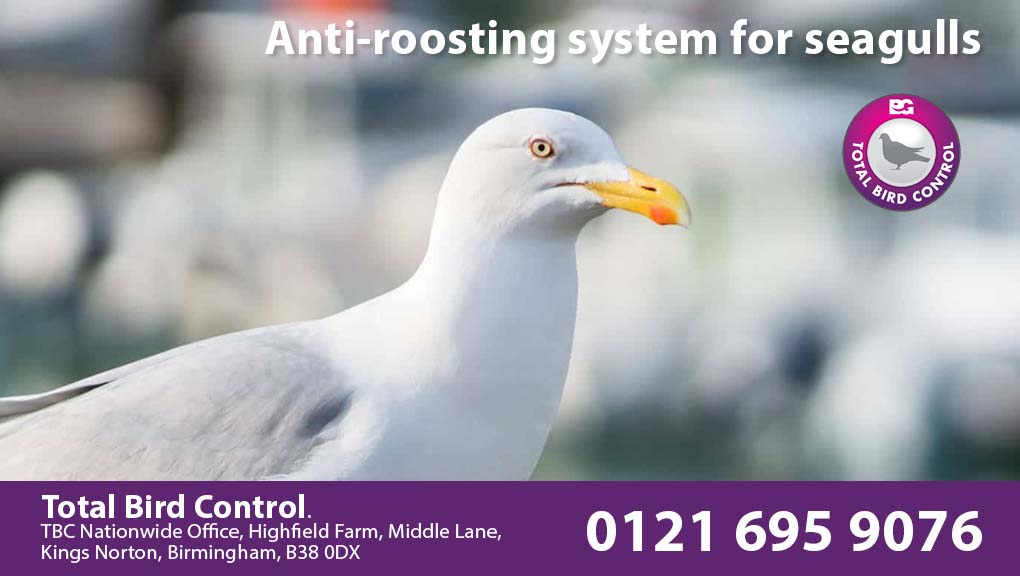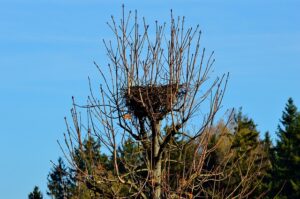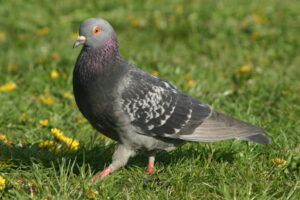Seagulls are a year-round problem for many communities but in the nesting season these problems can appear magnified.
As the peak nesting season approaches, it might be time to consider installing an anti-roosting system for seagulls to minimise the impact the birds will have on your home or business.
Already with a reputation for being noisy and aggressive, the nesting season, which runs through the months of April, May, June and July, can see these issues intensify.
As large birds, seagulls can be intimidating and, with their often-reported habit of swooping down to steal food from unwitting passers-by, an increase in aggression will only make this worse.
Seagull control in the form of an anti-roosting system is one way to take pre-emptive action against this.
The first step in reducing a seagull control problem is by keeping them off your property in the first place. Once they have found a good place to roost with a nearby food supply, seagulls will remain there.
How an anti-roosting system for seagulls works


The layout of the building – and its potential nesting areas – will determine what measures are used for seagull control.
As a general rule an anti-roosting system for seagulls will aim to stop the birds landing on the building in the first place, as such preventing them from nesting there.
An anti-roosting system for seagulls will include spikes that are fitted along potential roosting sites that stop the birds from landing without causing them harm.
Seagull spikes may be used in conjunction with netting to maximise the effect and coverage of the anti-roosting system for seagulls.
Why is seagull control so important?
If seagulls choose to roost on your property their numbers can quickly grow out of control –an anti-roosting system for seagulls will help to stop this.
Once they have a supply of waste food to feed off and a warm, sheltered place to roost that is free from predators, seagulls will be happy to stay.
Emboldened by their close proximity to people and wise to the rich pickings of either waste, or unwatched food seagulls will become an increasing problem, as will their noise and aggression.
If seagulls do make your property their home the following can become an issue:
- Bird droppings – as well as creating an unsightly mess and presenting a health hazard in the spread of disease, a high volume of seagull droppings will also present a slip hazard.
- Damage to buildings – Multiple seagulls perched on the edge of a building can cause damage physical and through their faeces fostering weed growth. Ultimately this could damage mortar and gutters.
- Damage through nesting – Seagulls can make nests in and around chimneys and gas flues with the potential of causing damage and presenting a danger though blockage.
- Aggression – seagulls divebombing and swooping close to people in the hunt for food is a serious concern, especially if you run a food business…
- Noise – the squawk of the seagull can become incredibly grating when heard en masse, day in, day out.
By acting early and putting in an anti-roosting system for seagulls you can deter seagulls from choosing to make your property their home.
Total Bird Control has extensive experience in fitting anti-roosting system for seagulls and will work with you to plan the best seagull control for your building whether it is your home or business.
To discuss installing anti-roosting system for seagulls at your property get in touch with Total Bird Control.
Total Bird Control
TBC Nationwide Office
Highfield Farm, Middle Lane, Kings Norton, Birmingham, B38 0DX
0121 695 9076










